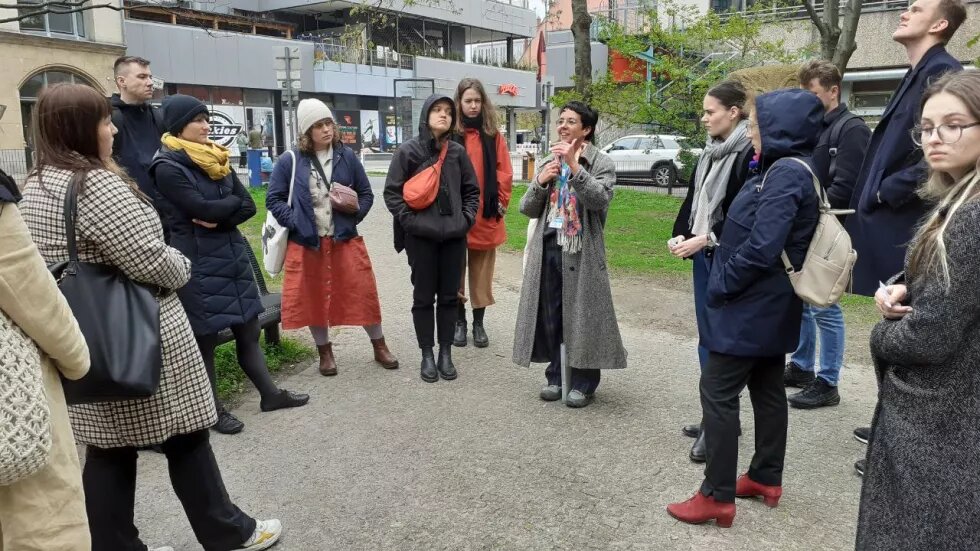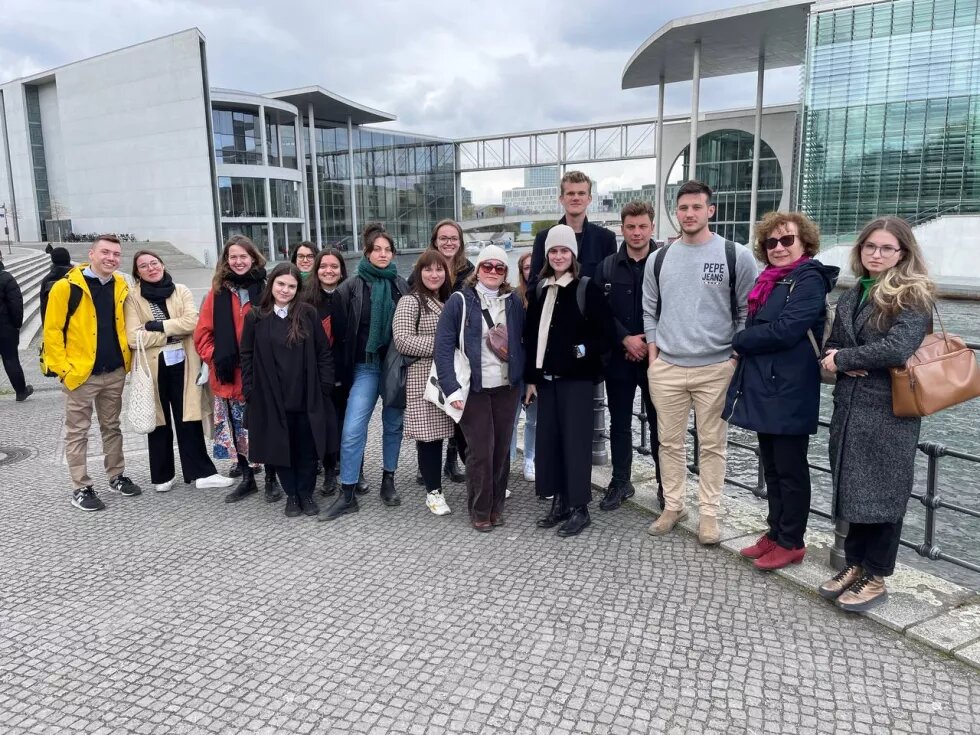
Students from Comenius University in Bratislava, Slovakia reflect on their impressions of the HBS study trip on “Feminist and Climate Foreign Policy” in Berlin, Germany and stress the importance of a vital civic society for the functioning of any democratic country.

A cross-cutting element running through the entire programme of the study tour in Berlin organised by the Heinrich Böll Stiftung was the question of how capable and willing Germany is to translate the milestones of its feminist and climate policies into tangible results. The ambition of Germany's “semaphore coalition” government (Social Democrats, Greens and Free Democrats) to apply these two agendas is just a concept within the broader framework of Germany’s "value-driven" foreign policy, of which German Foreign Minister Annalena Baerbock (Greens) is the mainstay. It is Baerbock who has placed human rights and democracy on the pedestal of her foreign policy concept. Thus, the meeting with these stakeholders and the way they reflected and framed the discussion about foreign policy is a confirmation that the feminist and climate agendas need not be seen as independent entities. They are complementary and flow into each other precisely because they carry values and touch on human rights issues at various levels. It is, however, important to recognize that Germany’s foreign policy stance is to a large extent defined by its previous experience in the international arena.
During the trip, it was enriching and fruitful, therefore, to observe the dynamics of the different perspectives raised between the German stakeholders on the one hand and the confrontation from the perspective of students from the Czech Republic and Slovakia whose historical experience is influenced by the magnetism of Russia on the other hand. Is it possible for a feminist foreign policy and its criticism of investment in the military and arms sector to be fully viable at a time when the most fundamental international geopolitical upheavals are taking place? Can Germany, aware of the fundamental violation of the rights of the Uighurs in China, continue to maintain trade relations with China? Is not the announcement of a "Zeitenwende" or "epochal tectonic shift" and the declaration to invest 100 billion euros into defence in direct contradiction to the essence of a feminist foreign policy? Of course, these are issues that need to be named and addressed in a particular way, but they do not address the essence and core of the feminist foreign policy approach. As Kristina Lunz (author, activist and co-founder and co-CEO of the Centre for Feminist Foreign Policy (CFFP) said during our workshop, feminist foreign policy is not an artificial concept, but its origins go back "100 years ago, during the First World War, when about 1500 women came to The Hague from many parts of the world for the International Congress for Women, calling for an end to the First World War and to establish a set of resolutions to avoid another World War". Aware of the historical anchorage of the CFFP, we as students from the CEE region should therefore confront ourselves with a diametrically different question: Why is it so difficult to push feminist and green policies at the highest political level in our region in particular ? The vast majority of political elites in the Czech Republic and Slovakia have consistently rejected feminist policies for a long time, and any hint of their integration at national level is met with rejection, belittling and tabooing of the issue.
The trip to Berlin in particular offered us several ways in which we as students can do our bit to improve the political and public discourse in both countries, with the aim of creating a more acceptable environment for the implementation of these policies in the future. One of the subliminal solutions that formed a unifying line across the entire study tour was the degree of activist and vibrant public life and civil society that Germany has. While the individual speakers came from different sectors, and their experiences as well as their life stories motivated them to pursue these policies from different intentions, the undeniable, unifying element was their civic engagement, whether we are talking about Kristina Lunz, or Jörg Haast, who heads the Globalisation and Transformation division of the Heinrich Böll Foundation and who protested and advocated for the opening up of climate issues in his youth, or Merle Spellerberg, who is one of the youngest female members of the German Parliament. All of the figures whom we had the opportunity to meet had been very publicly active since their youth at the regional and national levels. Germany thus offers a prime example of how intellectually astute, courageous, energetic activists and value-rooted individuals are able to influence and shape the outcomes of the political process. They are the drivers of innovative agendas and visions, motivating political elites to advance these goals at the national level. Non-profit organizations and a strong civil society can only exist if they are made up of such activists who are willing to perform in order to advance their goals, even at the cost of civil disobedience.
At the same time, the German environment is permeable and capable of generating actors within the civic milieu who will later assume political responsibility, either by directly acting in political representation or by participating in agenda-setting at the governmental level. Here it is possible to see a fundamental difference between the Czech/Slovak environment in contrast to the German one. Even though, in the case of the Czech Republic and Slovakia, the non-profit sector cooperates with the government to a certain extent, it is rarely invited to fully participate in the concrete creation of political measures. This may be one of the reasons why the V4 region is so plagued by populist and authoritarian rhetoric. The German story offers a recipe for getting out of this impasse.




